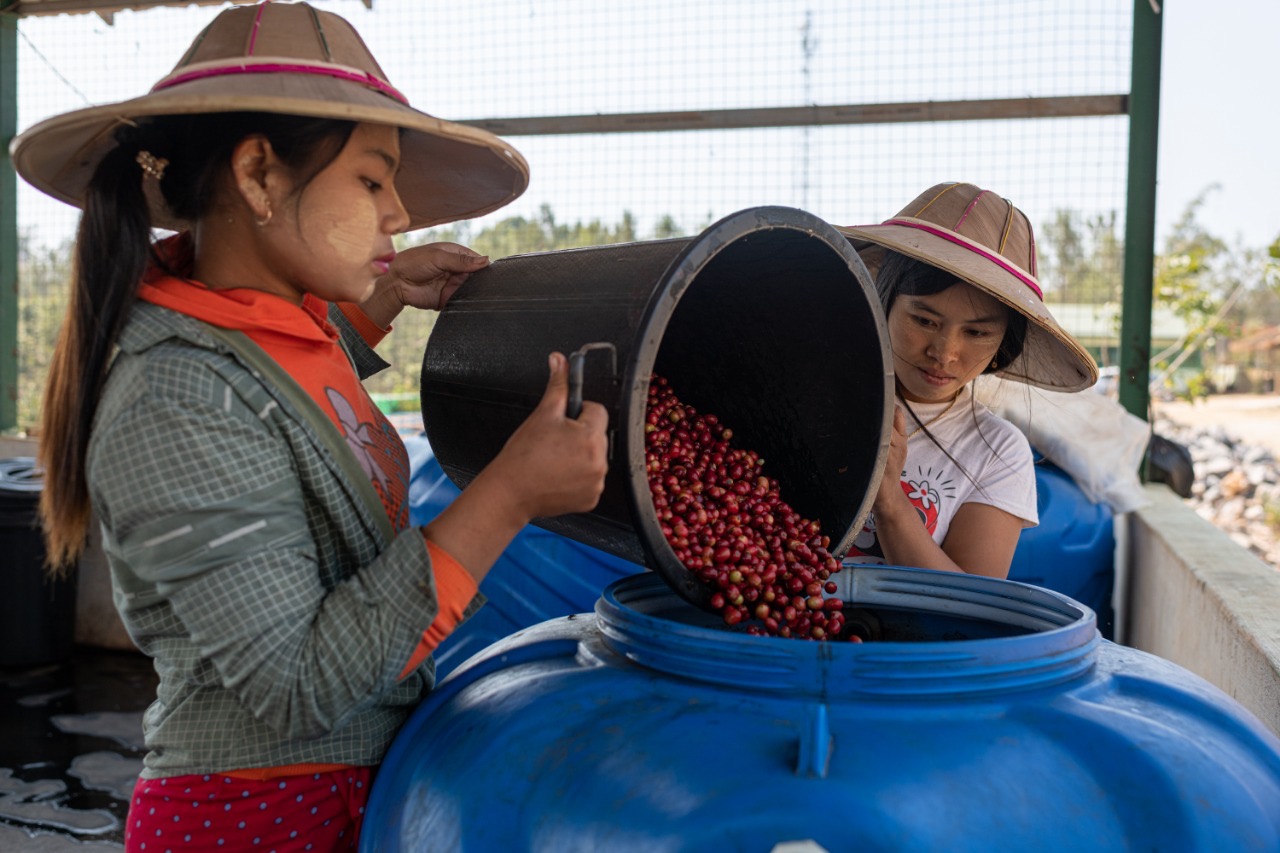
The collective initiatives behind the rise of Myanmar specialty coffee
During my visit to Myanmar in January 2020, I spent most of my time in Ywangan: a Danu self-administered zone (administered by the people who belong to the Danu ethnic group) with an elevation of 1098 – 1534 masl in Shan State, in the middle east of Myanmar.
Out of 125 villages in Ywangan Township, about 90 are engaged in coffee plantation. This is where the majority of our Myanmar specialty coffee comes from. Farmers here typically own a quarter of an acre to three acres, and the vast majority exist on a subsistence basis, with coffee and other crops sustaining their families.
During my trip, I’ve visited plenty of coffee farms and met with local producers and farmers who take part in collective initiatives that are working hard to build a sustainable future for coffee farming. Not only are they improving the quality of their beans but also focusing on fair trade and sustainability.
I want to introduce some of the initiatives we work with. They are not only our partners at origin but also a great inspiration for us to keep on moving forward with Indochina.
Mandalay Coffee Group
Mandalay Coffee Group was formed in 2014 and is owned entirely by citizens of Myanmar. It has been one of the main actors in the Myanmar specialty coffee industry and played an integral role in doubling the price of red cherry.
I spent time in three of the villages that supply coffee cherry for MCG (that are also sold by Indochina) including Kuak Ku Pyin, Ka Zad and Na Ban Gyi, and also had the chance to meet with MCG’s buying agent U Thint Lwin.
MCG purchases cherry from over 16 villages in Ywangan, with the cherry transported by trucks back to the processing facility in POL, 5 hours drive away. MCG provides pre-financing for village-level collectors before the harvest, with payments in advance and quality expectations communicated through U Thint Lwin.
Shwe Taung Thu (STT)
Shwe Taung Thu is a farmers’ group of over 20 villages that produces natural process coffees in the Ywangan area. They provide education, coordination and support to its member villages to bring these coffees to market.
I visited their headquarters and spent time at villages from which we purchased coffee from the previous year: A Lel Chaung and Pha Yar Gyi Kone. It was really nice hanging out with the farmers, getting to know each other and sharing our respective experiences in the coffee industry.
The Lady Specialty Coffee
Led by two of Myanmar’s next generation of specialty coffee pioneers – Su Nandar Linn and Thi Ha Gyawalie, both Q graders who also run their own family farms, they joined forces to set up The Lady Specialty Coffee to showcase and champion female coffee farmers in the region.
Coffees from The Lady are grown and processed exclusively by women. I visited their processing facility, cupped some very early samples of their washed lots and got to see the fermentation tanks they had recently constructed for their experimental honey process lots. We will be bringing in an exclusive lot of The Lady’s carbonic maceration red honey later this year.
Amayar
Amayar is a women-led coffee production group founded in June 2016 by Su Su Aung. Her vision is to export green coffee beans to international markets and produce high-quality beans to sell in the domestic market.
Visiting coffee farms at origin and spending time with local producers is the most rewarding part of our job. It re-connects us with the reason behind our business and fills us with motivation to keep on working to bring Southeast Asian specialty coffee to the UK and Europe and help build a better future in farming.
